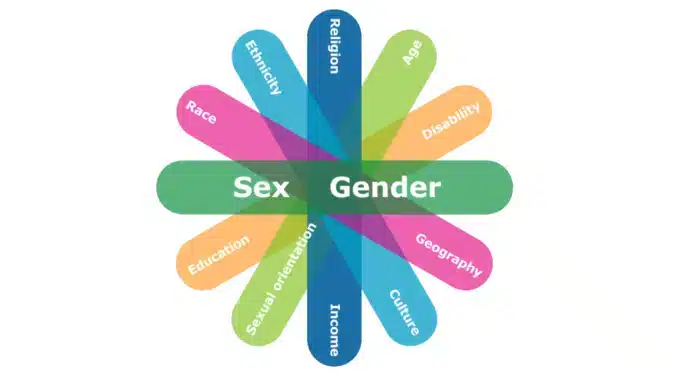
On June 24, 2022, the U.S. Supreme Court ruled that the US Constitution does not guarantee the legal right to abortion (Dobbs v. Jackson Women’s Health Organization).
Also on that day, Victoria Nourse, a Georgetown University Law Center professor, received a frantic phone call from her daughter asking whether our country can criminalize abortion. She replied, “Well, unfortunately, yes, they can.”
And so they did. But it didn’t stop there.
Reversing Progress: What’s at stake in US v. Rahimi?
When the Supreme Court rolled back decades of sex equality progress by overturning Roe v. Wade, many other gender justice rights also came under threat. This represented the topic of discussion at the ERA Project at Columbia Law School‘s October 30th panel discussion: Gender-based Violence & the ERA: A Discussion About Sex Equality & United States v. Rahimi.
Specifically referring to the decision in New York State Rifle Association v Bruen, the court altered the Second Amendment standard, imposing a more limited test, which allows the court to completely disregard women’s rights as victims of domestic violence.
The US Supreme Court’s decisions in both cases have further implications for other pending decisions, including the ongoing case in the US v. Rahimi, which pertains to gun rights and the Second Amendment. In this case, Zackey Rahimi was convicted for violating a protective order issued against him by his ex-girlfriend, whom he threatened, as well as for possessing a gun, which is prohibited under federal law for those under a domestic violence protective order. Rahimi challenged this federal law, citing Second Amendment protections. This case is now being heard by the Supreme Court.
There is a lot at stake with this case, according to Julie Goldscheid, Professor of Law at CUNY School of Law, not just in terms of what it means for gun regulation, but also about how Bruen will be interpreted. “The case illustrates much about how gender bias is baked into our culture,” Goldscheid says.
Further, the ERA would empower Congress to robustly enforce gender equality and prioritize gender-based violence as a compelling public interest, thereby granting Congress new and stronger authority to pass laws addressing gender-based violence by promoting sex equality. Conversely, without specific sex equality protections in the text of the Constitution, the Supreme Court will continue to ignore some of the most fundamental forms of sex-based inequality and violence.
Additionally, the ERA’s explicit mandate guaranteeing that rights “shall not be denied or abridged by any state on the basis of sex” would bring the Constitution into alignment with modern constitutions around the world by creating a duty for state actors to affirmatively address gender-based violence, especially where there has been a pattern of similar violence as in the Rahimi case. Essentially, the selective failure to enforce laws addressing gender-based violence would be a denial of rights on the basis of sex, and would therefore violate the ERA.
In 2022, nearly 92 percent of women killed by guns in high-income countries live in the US, primarily due to intimate partner violence. Women also experience domestic violence at double the rate of men, with about one in four experiencing it in their lifetimes. “When you combine intimate partner violence with guns, it’s a deadly combination,” Goldscheid continues
Yet the ERA has the power to change the law, according to scholars. “While the law is never enough to eliminate discrimination and bias, this gives us an opportunity to think about how the law could recognize and take more effective steps to remedy gender violence, gender bias, and other forms of bias,” Goldscheid adds.
Originalism’s Impact
One of the key issues at hand pertains to gender bias in legal interpretation. Bruen’s alteration of the text to focus on a nation’s tradition and history indicates a growing prevalence of originalism. Professor Nourse explains that originalism isn’t an old movement but rather a modern one, increasingly more reflected in the court’s rulings. “Rahimi is part of that long history of judges being very skeptical about the existence of domestic violence and sexual assault with refusing to believe survivors, downgrading it as trivial,” Nourse adds. “Our current legal frameworks allow these gendered assumptions and gender and race and other related biases to remain invisible,” Goldscheid contends.
Two Takeaways
On Nov. 7, 2023, the Supreme Court held oral arguments in U.S. v. Rahimi, resulting in two key takeaways. Liberal-leaning Justices Kagan and Jackson criticized the originalist standard set by Bruen in 2022, expressing their concerns about its application in cases related to domestic violence and women’s rights, while conservative-leaning Justices Alito and Roberts seemed to trivialize domestic violence concerns, also questioning the legitimacy of protective orders, suggesting that they are carelessly handed out by judges.
A written decision is expected to be handed down by the Supreme Court in the spring of 2024.
“All too often the only difference between a battered woman and a dead woman is the presence of a gun,” said Senator Paul Wellstone in 1996. Twenty-seven years later, this quote holds true, repeated by Solicitor General Elizabeth Prelogar during oral arguments at the Supreme Court in November 2023.
There is a lot at stake in this case, which only serves to further address the urgency of adding the ERA to the US Constitution. “The case really illustrates so much about how gender bias is baked into our culture,” Goldscheid concludes.
About the author: Natalie Novakova is a fellow in the Sy Syms Journalistic Excellence Program* at Women’s eNews, funded by the Sy Syms Foundation. The Sy Syms Journalistic Excellence Program at Women’s eNews fellowship supports editorial and development opportunities for editorial interns in the pursuit of journalistic excellence.
The Sy Syms Journalistic Excellence Program:
The Sy Syms Journalistic Excellence program at Women’s eNews was launched in 2014 with support from the Sy Syms Foundation. The fellowship provides support and development opportunities for editorial interns in the pursuit of journalistic excellence.
“For a democracy to flourish all voices must be heard.” says Marcy Syms, a founding Trustee and President of the Sy Syms Foundation. “Through its investigative reporting Women’s eNews gets at the essence of good journalism. The Sy Syms Foundation is proud of this collaboration to support today’s newest women journalists.”
As part of its mission to create social change for women and girls through investigative reporting, Women’s eNews helps foster, train, and support the career development of new journalists with a focus on social justice and women’s rights.


